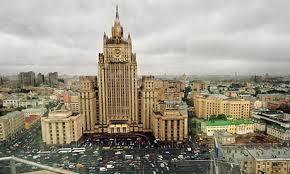A characteristic picture of Western media evaluations of Russian foreign policy toward Ukraine (and the post-Soviet space more generally) can be discerned in the questions of French journalists to Russian President Vladimir Putin on June 4, 2014, in Sochi on the eve of a visit to France. Such questions included: What is your vision of Russian strategy—dialogue or expansionism and conquest? Do you want to reestablish an empire or develop Russia within its current borders? Russian troops annexed Crimea; do you plan to return it to Ukraine? Do you want to integrate Ukraine into Russia and have you tried to destabilize the situation there? Who convinced you that you have a special mission for Russia?
Besides the opinion widely shared in the West that Russian foreign policy is based on neo-imperialism, what other explanatory frameworks could exist for Russia’s recent behavior? In contrast with the value-based foreign policy of the United States, Russian foreign policy is usually analyzed as interest-based and devoid of values. I claim that Russian foreign policy is widely based on attempts to export Russian state- and nation-building models. Mainstream official discourse and political research on the post-Soviet states in the West are framed around democracy and human rights, while for post-Soviet states, nation-building and state-building are more vital issues than regime type.
Experts most often explain the Russian role in the Ukraine crisis as a result of the non-democratic nature of Russia’s political regime. Another interpretation, however, is that during the recent events in Ukraine, Russian elites have tried to demonstrate that Russian state-building and nation-building models are more successful than those of Ukraine. The annexation/reunification/reintegration of Crimea (the choice of term depends on the source of discourse, and so I will use the latter term in this memo) is the result of this type of foreign policy thinking.









